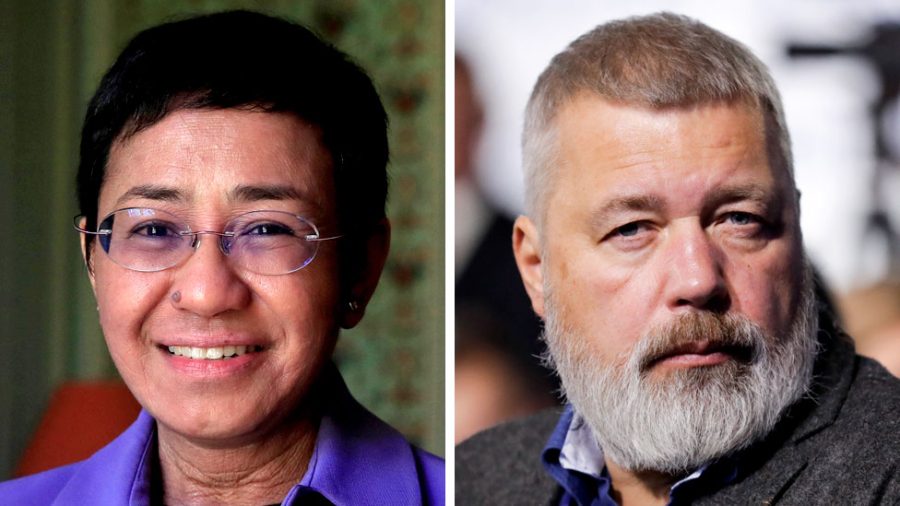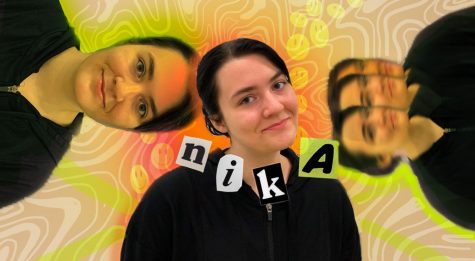2021 Nobel Peace Prize Winners
Maria Ressa and Dmitriy Muratov
January 18, 2022
The Nobel Peace Prize, which is awarded to exemplary individuals such as human rights activists, politicians, scholars, and journalists that promote peace between nations, was awarded to Dmitriy Muratov and Maria Ressa in 2021. This annual prize, which is awarded to winners by the Norwegian Parliament, has its roots in a remarkable story. In order to redeem his destructive legacy about inventing dynamite, nineteenth-century Swedish entrepreneur Alfred Nobel invested in the Nobel Prize in his will, which is given to those who “conferred the greatest benefit to mankind.” As a reward for their achievements, laureates receive a medal, diploma, and an amount of money that can total up to nine million dollars. In October 2021, the Norwegian Nobel Committee announced their selection of Muratov and Ressa for their groundbreaking journalistic efforts in reporting from warzones and combating authoritarianism.
Dmitriy Muratov had been selected for his fight for the freedom of expression in Russia. He had helped found the independent newspaper, Novaya Gazeta, of which he had been the editor-in-chief for twenty-four years. Six of Novaya Gazeta’s journalists have been killed, mainly for their scathing reportages of human rights abuses in Chechnya, extrajudicial killings, corrupt politicians, kidnappings, unlawful arrests, election fraud, and police brutality. In his translated Nobel lecture in Oslo on December 10, 2021, Muratov lamented that jailed Russian rights activist Alexey Navalny did not get the prize and stated that,”of course, we understand that the award today goes to the entire community of investigative journalists.” In a country where independent journalists and NGOs are being labeled “foreign agents,” Muratov believes that investigative journalism is the “antidote to tyranny.”
Maria Ressa is a Filipino-American rights activist who is the CEO of Rappler, which is a Southeast Asian news source. She had worked as a journalist for thirty-five years and created the Manila Bureau in CNN. She staunchly opposes the current Filipino president, Rodrigo Duterte who she accuses of being linked to the vigilante Davao Death Squad that had killed thousands of people in its “war on drugs.” The government sent out arrest warrants and accused her of cyber libel due to her honest coverage about the corrupt government. She blasted surveillance capitalism because of how social media can help authoritarian governments spread bias and catalyze violence, saying in her speech that it “poses a foundational threat to markets and elections.” State actors are notorious for utilizing asymmetrical warfare tactics such as cyberwarfare to destabilize democratic countries.
Muratov and Ressa prove to us that human rights abuses are not “internal affairs” that should be ignored by the global community. The effective work of independent journalists has shown that the caravan goes on because the dogs bark, as Muratov had suggested. Ressa claimed that the more the investigators and reporters are attacked, the more resilient they become.
“Now let’s go and make it happen. Let’s hold the line. Together,” Ressa concluded.



